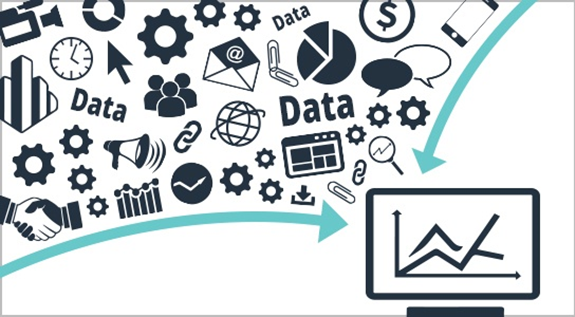The success of any business depends on how well the sales pipeline exists in terms of the quality of prospects and details we have about the prospects so that when they are led to the sales conversation the sales team has the highest chance of converting them to customers.
One of the key steps of this is having a reliable B2B database with prospect details that can be accessed faster with more accurate information.
The right B2B database can make the salespeople the most relevant information of decision makers at their fingertips, so they can engage in meaningful conversation and close the deal.
But how do you procure this database for the client profile your serve? Which sales lead database is right for your business, and which will get the B2B Data most relevant?
What are the key questions to be asked before you start to find these database providers so that you don’t commit a mistake in this crucial step?
Answer these four simple questions, and you’ll have a much better idea of which solution is right for you:
1. What kind of data do you want?
B2B data encompasses a wide range of information. The best solution for your business will depend on the type of data you really need.
Whether you want to serve a market who are using certain technology solutions or a market that has a specific problem, looking for certain solutions already, it can be many options.
So having the ideal client profile that includes demographic, psychographic, and behavioral aspects as well as your own internal customer transaction data is the first place to start and
Make a list of exactly the type of data you want. For example:
- Demographic data
- Individual contact information
- Technographic data, the technologies a company is currently using
- Firmographic data, such as company size, location
- Organizational data
- Buying intent data and signals
- Data from social media platforms
- Specific target companies
- Jobs posted
The more specific you are with the type of data you need, the easier it will be to narrow down your options to the right B2B data vendor.
For example, do you need a tool to find companies using specific technology in-depth technographic data like businesses using Salesforce.com, or pipedrive.com? Then Slintel is a good option to consider.
Or, are you looking for your businesses with specific titles with certain credentials like coaching certification? Then LinkedIn Sales Navigator should be near the top of your list of options.
List your top data needs, and then match that to the right B2B data provider.
2. What kind of contact info volume do you need?
Many of the options in the list above give you a certain number of B2B company or contact searches within a specific time frame, depending on the pricing plan you choose.
Depending on the size of the team you have, the deals you want to close per month, and the number of meetings to book, you can decide on contacts you would want to procure.
Think about your B2B lead generation volume and the number of searches that your team will be doing, plus how specific your searches will need to be. This will help you determine which solution and pricing tier works for your team. For more details on this check our capacity planning tool.
Even once you choose a solution, pay attention to the quality of the data it delivers over time. If you need ultra-specific searches, you may find that the quality decreases the more you search, since the database doesn’t have enough contacts that perfectly fit your targeting.
3. Plan your budget?
B2B data solution comes at various prices. Depending on the kind of contacts you want, the level of details as well as how much real-time information, the company’s prices. Providers like ZoomInfo, and Slintel, come with minimum credits that run into 10K or more, whereas others provide per-contact search.
Also, plans come with per-credit search, month-to-month, or annual plans.
First, you’ll need to determine exactly how much you’re willing to spend on B2B sales lead data. The price you’re willing to spend will depend on the kind of ROI you expect back. Since your main return will come from the time saved by your sales team, calculate that number and think about how much you’re really willing to spend. Again the capacity planning tool can help you with this.
Then, match that budget with the search volume you need. With this, you’ll see which tools offer a pricing plan that fits your budget as well as your search volume needs.
4. Does the solution meet the standards of a good B2B data provider?
Data quality and customer experience are two elements that can vary between B2B data solutions. So, make sure to read the fine print and see if your chosen solution meets the standards it should in these areas:
Accuracy: The worth of a B2B database is measured by the accuracy of the datasets you find. Does your chosen solution have a high accuracy guarantee or an email deliverability guarantee? Will they refund you for bounced emails or incorrect phone numbers? Do they automatically update the data once you purchased it? Some data points, like job titles, for example, can quickly become outdated.
Customer support: As with any software solution, good customer service is an important part of your decision. Will the company help you find the data that you need? Will they give you training on the more advanced features of the software? How quickly will they respond when something goes wrong?
Consider these factors when deciding on the right B2B data tool for your business.
5. How well does the data solution work with your stack?
The best B2B data provider for your sales team depends heavily on the sales tech you’re currently using.
Most data solutions integrate directly with major CRMs, such as Salesforce, and Hubspot. But if you’re using another CRM or outreach tool, you need to check if the data solution you’ve picked integrates with your existing technology.
Now, dig deeper—how does the integration work? Can you directly import leads into your CRM? Does it update and automatically refresh your contact data? Or do you need to manually export, edit, and import the data?
The simpler the process, the better. If your data tool creates more manual work for your team, you’ll be less likely to see a big ROI.
Choose your B2B data providers wisely
The data your team uses to understand their target market will affect how quickly and smoothly they can do their job (which is: moving sales conversations forward, rather than wasting away at time-consuming tasks for checking and correcting low-quality data)
With better data to support their sales efforts, you or your team will close deals quicker and develop deeper relationships with new customers.
With the steps given above, you have a good starting point. Now, you can choose the B2B data solution that fits your budget, gives you the data your team needs, and connects easily with your current stack.


